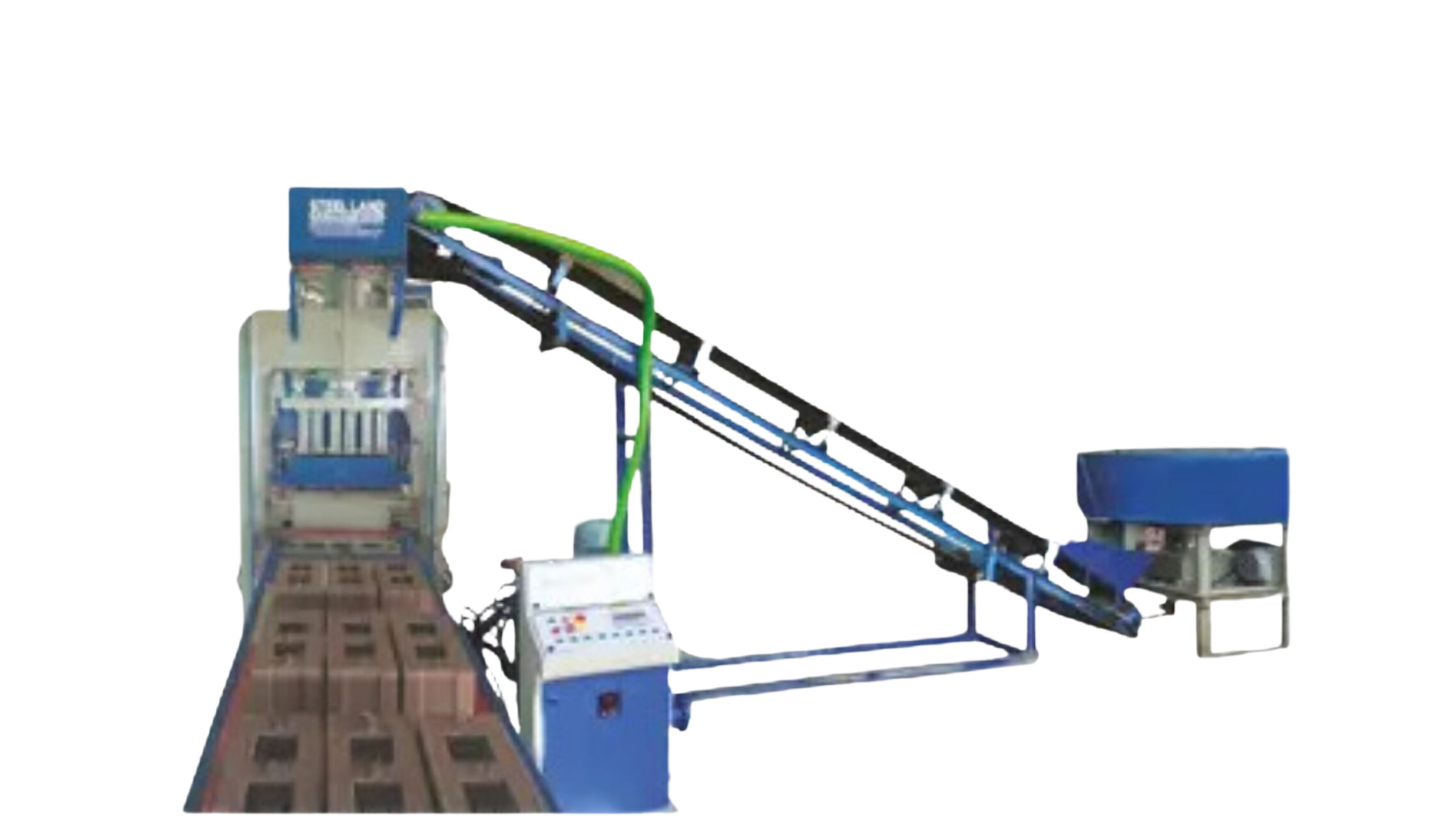The construction industry in India is booming, and concrete blocks are a fundamental building material. To meet this growing demand, efficient block production is crucial. This is where block-making machine manufacturers in India come in. If you're considering entering the block manufacturing space or looking to upgrade your existing operations, this comprehensive guide will equip you with all the essential information about concrete block-making machines in India.
Understanding Block-Making Machines
A block-making machine is a mechanized system that automates the production of concrete blocks. These machines offer significant advantages over manual production methods, including:
Increased Efficiency:
Block making machines produce blocks at a much faster rate compared to manual labor.
Improved Consistency:
The machines ensure consistent block size, shape, and density, leading to better construction quality.
Reduced Labor Costs:
Automation minimizes reliance on manual labor, lowering production costs.
Versatility:
Modern block making machines can produce a wide variety of block types and sizes to cater to diverse construction needs.
Types of Block-Making Machines in India
There are two primary categories of block making machines available in India:
Stationary Block Making Machines:
These are fixed installations ideal for large-scale, high-volume production facilities. They offer superior production capacity and are suitable for commercial and industrial applications.
Mobile Block Making Machines:
These portable machines are perfect for smaller projects, remote locations, or situations where frequent relocation might be necessary. They provide flexibility but have a lower production capacity compared to stationary machines.
Here's a breakdown of some popular block making machine types based on their level of automation:
Manual Block Making Machine:
A basic machine requiring manual operation for all stages of the block production process.
Semi-Automatic Block Making Machine:
Incorporates some automation, typically in the mixing and molding stages, while demolding and block stacking might still be manual.
Fully Automatic Block Making Machine:
Offers complete automation, handling all stages of production from material mixing to finished block stacking.
Choosing the Right Block-Making Machine for You
Selecting the ideal block-making machine hinges on several factors specific to your requirements. Here are some key considerations:
Production Capacity:
Evaluate your anticipated block production volume and choose a machine that can meet your needs.
Block Types:
Determine the types of blocks you plan to produce (solid, hollow, pavers, etc.) and ensure the machine has compatible molds.
Level of Automation:
Consider your budget and desired level of automation. Fully automatic machines offer higher efficiency but come at a premium cost.
Space Constraints:
For stationary machines, assess your available space to ensure the machine can be comfortably accommodated.
Budget:
Block-making machines range in price depending on their features, automation level, and capacity. Define your budget and choose a machine that offers the best value for your needs.
Here are some additional tips for Indian block-making machine buyers:
Research block-making machine manufacturers in India. Look for reputable companies with a proven track record and a strong service network.
Compare specifications and pricing from different manufacturers. Don't settle for the first option you encounter.
Consider after-sales service. Ensure the manufacturer offers reliable after-sales support for parts, maintenance, and troubleshooting.
The Block Making Process in India
The basic block making process using a block making machine typically involves the following steps:
Raw Material Preparation:
Sand, aggregates (gravel, crushed stone), cement, and water are measured and proportioned according to the desired block type and quality.
Mixing:
The raw materials are thoroughly mixed in a mixer to create a uniform concrete mix.
Molding:
The concrete mix is fed into the mold cavity of the block making machine. The mold determines the final shape and size of the blocks.
Compaction:
The mixture is subjected to high pressure or vibration to remove air pockets and ensure dense, strong blocks.
Demolding:
After compaction, the finished blocks are ejected from the mold.
Curing:
The green blocks are stacked and allowed to cure under controlled moisture and temperature conditions to achieve their full strength.
Benefits of Using Block-Making Machines in India
There are numerous advantages to adopting block making machines in the Indian construction sector:
Cost-Effectiveness:
Block-making machines can significantly reduce production costs by lowering labor requirements and increasing production efficiency.
Improved Quality:
Consistent block size, shape, and density lead to better construction quality and stronger buildings.
Faster Construction:
With increased block production speed, construction projects can be completed faster.
Reduced Environmental Impact:
Reduced dependence on fired bricks lowers energy consumption and environmental pollution.
Conclusion
Concrete block-making machines are a valuable investment for businesses looking to enter the block-production industry



